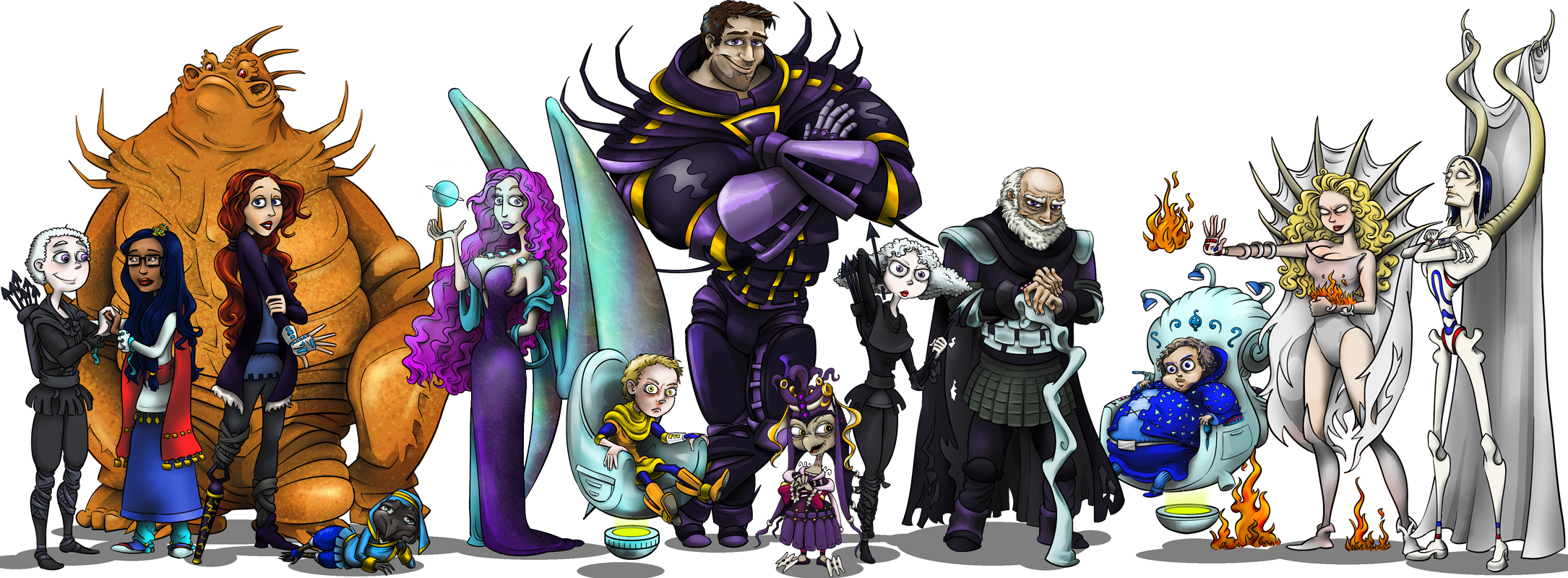I’m working on a new series about a country bumpkin who reverses the enshittification of magic.
So I just read and reviewed Bullshit Jobs, a nonfiction book that touches on a phenomenon that a lot of Westerners can observe. Big business seems to have a reverse Midas effect, where it turns good things to crap instead of to gold. Cory Doctorow wrote about this and the term entered pop culture. On a related note, an awful lot of people are employed doing meaningless tasks, ticking boxes and generally doing nothing more than covering the collective asses of their bosses. The number of middle managers in America has skyrocketed in recent years.
It’s great that so many people are recognizing this as a societal problem. It’s validating to know I’m not crazy. But I don’t think there is common agreement on the root cause of the problem.
From my point of view as a lifelong artist and writer… everyone is an artist and writer these days. Everyone believes they have something worth saying to the world. And for the first time in human history, everyone has the means to do so. In an attention economy, the people who are able to buy or beg the most attention from the masses are the winners. These are the people who influence everyone else. It’s all about popularism.
A CEO of a big conglomerate wants to claim they are a force for good in the world. Their junior executives feel pressure to help make that boss look good, and their underlings feel that same pressure to make their bosses look good. So we have an economy of ego-soothing. Let’s say the CEO had a power dinner with another CEO and they shake hands on a deal. It doesn’t matter if they made a good deal or a bad deal. It’s not about whether using Salesforce will be beneficial. It’s about pretending that it’s a win-win so the boss looks like they made a smart choice. That is where all the true emphasis is. The junior executives will scramble to maintain that illusion. If the fallout entails enshittification, it’s all about kicking blame to the bottom so none of the executives or middle managers take the hit. Problems don’t get resolved. They get duct-taped at best. There’s a lot of churn at the bottom.
The book Bullshit Jobs advocates reducing the average work week to 15 hours or less, since so many jobs/careers are extraneous. I think that would result in short-term happiness for a lot of people, and it might have longer term effects that are positive. The idea has merit on its own. However, I am not convinced it would solve the entrenched problems of an attention economy. Everyone wants to be heard. Social climbers will continue to exploit the attention of the masses—and if most people suddenly had a lot more free time, that would give celebrities a lot more leverage. Taylor Swift’s fans might organize to make a fan film, and that’s harmless fun. Or a dangerous cult leader might entice millions of bored young people. In other words, I don’t think that giving everyone more leisure time solves the pernicious problems engendered by societal wealth.
In a lot of ways, the problem of excess jobs/wealth is like the problem of excess calories available. Overall, people are living longer and are not likely to die from starvation, but yeah, obesity has skyrocketed. Likewise, people now have easy access to a lot of leisure time. Overall, people are more creatively expressive and not likely to die as overworked slaves doing hard menial labor. But yeah, busywork nonsense jobs have skyrocketed.
The universal basic income scenario, I think, does not address the root problems of massive societal wealth and an attention economy. If people are truly unhappy drawing a high salary while actually doing nothing useful, then I’m not sure how drawing a low welfare income while actually doing nothing useful will cure that. It sounds worse. It sounds like a potential recipe for resentment and despair—especially from people who actually do useful things.
I hope society stops incentivizing salaried drudge work by forcing that to be the only possible way for average citizens to get healthcare and family care. We need more people building their own dreams, or researching a cure for cancer, instead of feeling trapped in a paradigm where they need to sell the best years of their lives in order to afford children and care for elderly parents and get basic necessities met. Why do self-employed creatives or innovators have to jump through a zillion legal and financial hoops for mere access to the basic societal services that a salaried box ticking middle manager automatically gets?
Home loans and mortages. Credit scores. Insurance plans that function as automatic gatekeepers. I’m not saying these things should necessarily be gotten rid of or redistributed, but *access* to them should be equalized. There’s no reason to gatekeep it on the basis of whether you’re white-collar, blue-collar, or self-employed. There’s no reason to turn managers (and people who pretend to work) into an unintentionally privileged class. That’s incentivizing the wrong things in society and civilization. That’s the problem I would want addressed.
Feel free to have at me in the comments or wherever! You know where to find me on social media and email.



